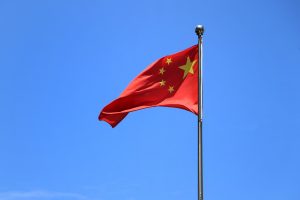As the United States votes today, China will be watching. The results will have important implications for the country, given the Trump administration’s outspoken anti-China stance. There has been analysis speculating that Chinese leaders would prefer President Donald Trump lose his re-election bid; there is also a raft of analysis suggesting that China is rooting for Trump to win, because of the damage he is doing to the United States’ standing abroad.
But to policymakers in Beijing, the victor of the U.S. presidential race matters less than one might imagine. Regardless of the outcome of Tuesday’s vote, the Chinese Communist Party (CCP) sees itself as the ultimate winner.
It might seem an odd time for supreme confidence on the part of the CCP. Outside observers have pointed to China’s battered image abroad, particularly in Europe, as a result of both the COVID-19 pandemic and Beijing’s aggressive “wolf warrior” diplomacy in the aftermath. But China’s leaders continue to see the post-COVID world as theirs for the taking.
That optimism was reflected in the communique issued after the fifth plenum last week. The communique declared that “today the world is experiencing great changes not seen in a hundred years,” including a “profound adjustment” in the international balance of power. Those phrases are CCP jargon for the perceived rise of China’s power –and the decline of the United States. They have been used since 2017, when Trump took office, but their appearance in an official CCP communique highlights an important level of consensus. It appears that COVID-19 has only strengthened China’s confidence in its continued rise.
As a Global Times editorial after the fifth plenum put it, “At the moment, China is facing the most problems and challenges. However, the country is also the most confident now. Other countries have posed many difficulties, but they provide reference and proof that we are doing better.”
There is a tendency to ascribe Beijing’s triumphalism to Xi Jinping personally, but the shift began before he emerged on the scene. The CCP’s belief that the balance of power is shifting – in China’s favor – is “explicitly linked to structural shifts accompanying the 2008 Global Financial Crisis,” Jude Blanchette wrote in his analysis for Center for Strategic and International Studies. The financial crisis, which began in the United States and impacted China less than other large economies, bolstered confidence in the Chinese system. It also sparked a spate of commentaries on the decline of the West (and the United States). The COVID-19 pandemic looks set to function in a similar way, further entrenching CCP leadership’s belief in the inevitable nature of both China’s rise and the United States’ fall.
As Rush Doshi wrote in a recent article for Foreign Policy, “[T]he global financial crisis of 2008 convinced Beijing that the United States was weakening,” and China changed its strategy as a result. Now that’s happening again. According to Doshi, “We are now living through a third strategic shift” in China’s foreign policy thinking. The new “Chinese grand strategy is focused on expansion. It seeks to spread China’s influence beyond Asia and contest the foundations of U.S. global order.”
As Doshi points out, Chinese scholars believe that Trump has accelerated the U.S. decline, but it will continue regardless of who is in office. In other words, the election results matter less to Beijing than it may appear. When Xi declared that “China is in the best development period since modern times” in 2018, he meant it – regardless of the 2020 election results.
This self-confidence is bolstered by Xi’s renewed insistence on the relevance of Marxist theory. In the Marxist view, history is an inevitable march toward a single destination: the triumph of communism. Mediated by CCP ideology, that translates to an ultimate victory for China, as the West is destined to collapse under the weight of capitalism’s structural flaws. Surging populism and protectionism in the United States and certain European countries is seen as proof. In the CCP view, we’re moving toward the end of history – with Chinese characteristics.
Thus when Chinese government spokespeople accuse the United States of “standing against the trend of the times,” we should pay attention. Yes, it’s propaganda, but it also reflects a genuine belief that China, not the United States or the West writ large, is on the “right side of history.” And if history is inexorably marching toward the “great rejuvenation of the Chinese nation,” as many in Beijing appear to believe, then it doesn’t really matter who the next U.S. president is.

































